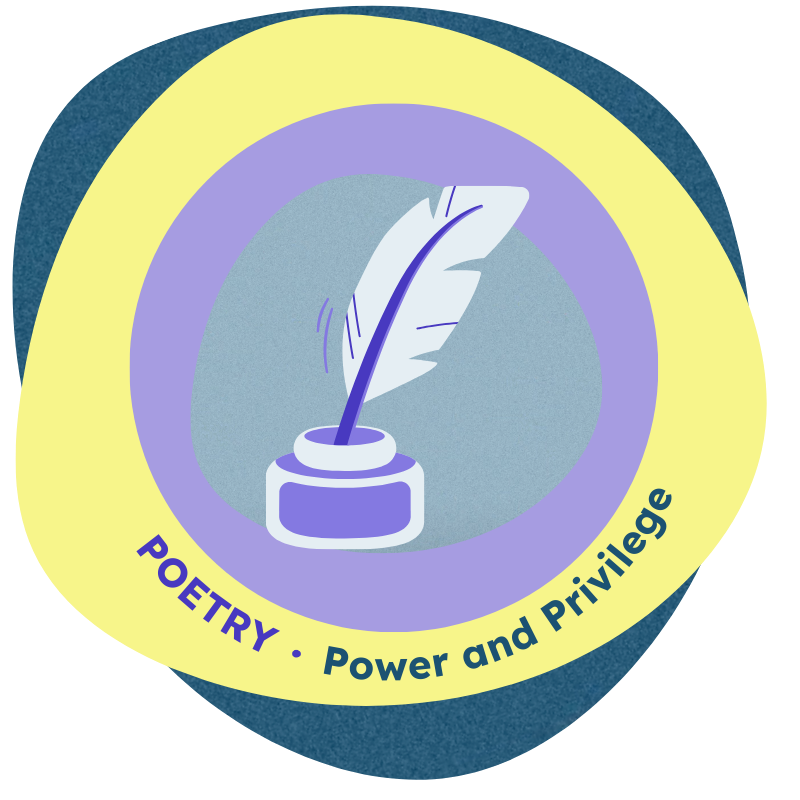
Poetry
Power and Privilege
-
Important documents:
Professional reading:
Power and Privilege animation
Power and Privilege professional reading and reflections
Expressions of Power Information
Professional development reading: Sipe, L. R., & McGuire, C. E. (2006). Young children's resistance to stories. The Reading Teacher, 60(1), 6-13.
-
Learners will read the poem Saying No by Joseph Coelho and consider when they have the power to say ‘yes’ and ‘no’ in different social situations.
Download 1st level PPT (designed to complement the PDF)
-
Learners will read the poem Stomp by Nikki Grimes and think about the power, good and bad, that words hold. They will reflect on ways in which they can empower themselves in different ways.
Download 2nd level PPT (designed to complement the PDF)
-
Learners will read Checking Out Me History by John Agard and explore power in the context of who decides about the histories we learn, how we learn about these and why. In considering their own personal stories and histories, they reflect on what we mean by history and how this relates to our identity.
Download 3rd level PPT(designed to complement the PDF)
-
Two companion poems are provided at 4th level; learners can explore one or both.
They will read What is Home? by Mosab Abu Toha. They will think about what we mean by ‘home’ in our own lives and in the context of those who are forced to flee their homes.SQA: Through the poem Whilst Laila Sleeps by Jackie Kay, learners will explore how political systems can disempower individuals, and the impact this can have on their lives, their families and their cultures. They will reflect on ways that power over, with, to and within are expressed or inferred in the poem.
Download 4th level PPT (designed to complement the PDF)
Through poetry, learners will reflect on what it means to be empowered and also what it can mean to be disempowered. They will explore different types of power: power over, power to, power with and power within in different contexts. They will look at the power we have within ourselves to make positive decisions and to stand up for our own and others’ rights. They will also reflect on the power of collective action that comes from working together to bring about positive change.
Anti-Racist Curriculum Principles
Our children and young people will: be supported to reflect on positionality, privilege and power, and to unlearn bias, prejudice and divisiveness.
Our children and young people will: be empowered to bring about new ways of being together in the world by valuing and promoting empathy, solidarity and shared humanity that us often disrupted by systemic racism.
Article 2: The right to non-discrimination
